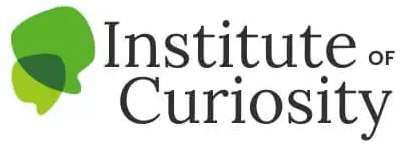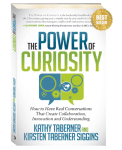Every team faces stress. Deadlines, high-stakes projects, fast decisions, and unexpected changes all add pressure to professional life. While stress is inevitable, how a team responds determines whether performance suffers or strengthens.
Resilient, high-performing teams share one key differentiator: emotional intelligence.
Why Emotional Intelligence Matters When Stress Hits
Stress is contagious. One tense reaction can ripple across an entire team, creating misalignment, conflict, and disengagement. Conversations get avoided, decisions get rushed, and collaboration breaks down.
Emotional intelligence (EI) is the ability to recognize, understand, and manage emotions; your own and others’. In high-pressure moments, EI allows leaders and teams to stay grounded, communicate effectively, and make sound decisions without reactivity.
Research shows that teams with higher emotional intelligence:
- Communicate with clarity
- Recover faster from setbacks
- Maintain higher performance under pressure
- Create environments of trust and motivation
The good news – EI is not a fixed trait. It’s a skill set that can be built into daily habits to help teams remain resilient and high-performing, even in demanding situations.
The 5 Emotional Intelligence Habits That Boost Team Performance
1. Self-Awareness Under Stress
Self-awareness is the foundation of EI. It’s about noticing your emotions, understanding what triggers them, and recognizing how they influence your behavior.
Under stress, many people shift to autopilot; talking over others, shutting down, or reacting without realizing how it impacts the team.
Practicing self-awareness means learning to:
- Identify stress triggers
- Acknowledge the effect your tone, pace, or body language has on others
- Pause before reacting
Example: A leader notices they tend to speak louder and faster in high-pressure meetings. By slowing their pace intentionally, they create space for others to contribute, thereby lowering the tension and inviting collaboration.
2. Regulating Emotions in Real Time
Awareness without regulation is incomplete. Emotion regulation is the habit of staying composed under stress.
Most people act from emotion instead of using emotion as data. Frustration, fear, or impatience often result in rushed words, defensiveness, or avoided conversations; all of which drain energy and erode trust.
Practical tools to regulate emotions include:
- Pausing before replying
- Asking clarifying questions instead of reacting
- Refocusing on team values to keep conflict task-focused, not personal
- Using grounding techniques like deep breathing or short resets
Example: In a heated discussion, a team lead feels frustration rising as ideas get challenged. Instead of cutting in defensively, they pause, breathe, and ask, “It sounds like you have a different perspective. What’s your take on this?” This shifts the tone to invite collaboration instead of conflict.
3. Active Listening Under Pressure
Stress makes listening harder. People often focus on being heard or defending their position, which increases conflict.
Active listening is the habit of listening with the intent to understand; paying attention to both words and nonverbal cues, then reflecting to confirm clarity.
Teams that practice active listening:
- De-escalate tensions before they grow
- Build faster trust and stronger alignment
- Foster innovation through diverse perspectives
Example: In a deadline debate, one teammate listens actively, paraphrasing: “I hear you feel the timeline isn’t realistic. What would a more workable option be?” That reframes the conversation from personal tension into collective problem-solving.
4. Curiosity Builds Empathy & Trust
Under pressure, curiosity is often the first casualty. Teams become transactional; focused on execution rather than connection. However, when curiosity wanes, empathy and trust tend to follow.
Curiosity creates psychological safety; the knowledge that it’s safe to share ideas, express concerns, and take risks. This is the foundation for collaboration and innovation.
Example: A manager notices a team member struggling with the workload. Instead of saying, “We all have to push through,” they pause to ask, “What feels hardest right now, and how can I support you?” That curiosity creates empathy, strengthens trust, and keeps the team engaged. Curious questions turn pressure into connection, deepening trust across the team.
5. A Growth Mindset
A growth mindset reframes pressure as opportunity. Where stress tempts people to see obstacles as failures, growth-oriented teams see them as stepping stones.
Teams with a growth mindset:
- Treat mistakes as lessons
- Adapt quickly under uncertainty
- Stay curious instead of defensive
- Encourage each other, fueling collective resilience
Example: After a presentation falls flat, a team avoids blame and instead asks, “What did we learn, and how can we do this differently next time?” That reframing turns setbacks into momentum.
From Stress to Strength: Turning EI Habits Into Team Superpowers
Stress may scramble communication and test relationships, but developing EI habits transforms those challenges into strengths. When teams practice self-awareness, emotional regulation, active listening, curiosity, and a growth mindset, they:
- Communicate clearly under pressure
- Maintain trust and connection
- Recover faster from setbacks
- Collaborate with agility and creativity
Through tools like the WE-I Profile assessment and experiential Team Development Workshops, the Institute of Curiosity helps teams uncover blind spots, practice EI skills in real time, and replace reactivity with resilience.
Thriving Under Pressure with Emotional Intelligence
Stress at work is unavoidable. But how your team responds to it is entirely within your control.
Embedding EI habits into team culture
By embedding these five emotional intelligence habits, your team can build resilience, strengthen collaboration, and sustain high performance, no matter the pressure.
Ready to equip your team to thrive under stress?
Explore our Team Development Workshops to grow emotional intelligence and unlock higher performance.






